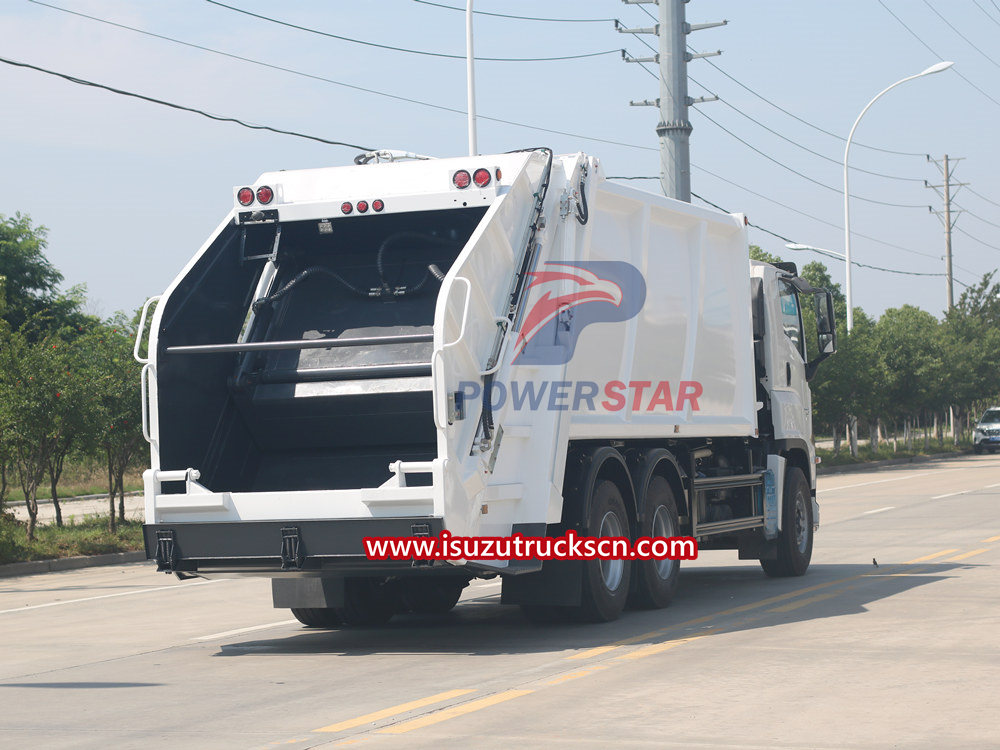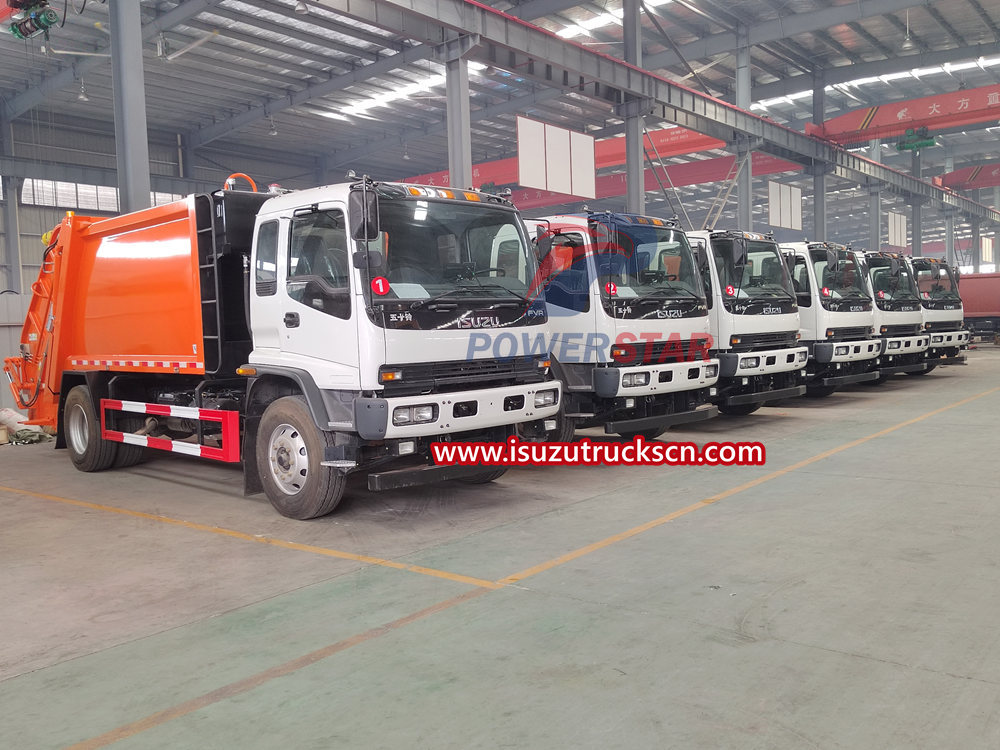


The most feared things when repairing and maintaining Isuzu garbage trucks
Maintenance is an effective means to restore the performance of special vehicles such as Isuzu garbage trucks and extend their service life. However, in the actual operation process, some operators and maintenance personnel have many wrong practices, which affects the normal use of special vehicles.
1. Only add engine oil but don’t change it
Engine oil is indispensable in the use of diesel engines. It mainly plays the functions of lubrication, cooling, and cleaning. Therefore, many drivers will pay attention to check the amount of lubricating oil and add it according to the standard, but they ignore the inspection of lubricating oil quality and the replacement of deteriorated oil, resulting in some engine moving parts always in poor condition. It operates in a slippery environment, thereby accelerating the wear of various parts. Under normal conditions, the loss of engine oil is not large, but it is easily contaminated, thus losing the role of maintaining the diesel engine. During the operation of the diesel engine, a lot of contaminants (soot, carbon deposits and scale deposits generated by incomplete combustion of fuel, etc.) will enter the engine oil. For new or overhauled machines, there will be more impurities after trial operation. If you rush to put them into use without replacing them, it will easily cause accidents such as burning tiles and holding the shaft. In addition, even if the engine oil is changed, some drivers, due to lack of maintenance experience or trying to save trouble, will not thoroughly clean the oil passages during the replacement, leaving mechanical impurities still remaining in the oil pan and oil passages.

2. Use butter indiscriminately
(1) Apply butter to the cylinder gasket. Butter is a grease commonly used in construction machinery repairs, which can provide lubrication and sealing. Therefore, when some repairmen install the cylinder gasket, they will apply a layer of butter on the cylinder gasket, thinking that this can increase the sealing performance of the diesel engine. As everyone knows, doing so will affect the performance of the diesel engine. The cylinder gasket is the most important seal between the diesel engine cylinder block and the cylinder head. It can not only seal the high-temperature and high-pressure gas generated in the cylinder, but also seal the cooling water and lubricating oil in the cylinder head and cylinder body. Therefore, when disassembling When installing the cylinder gasket, pay special attention to its sealing quality. If butter is applied to the cylinder gasket during installation, when the cylinder head bolts are tightened, part of the butter will be squeezed into the cylinder water channel and oil channel. The butter left between the cylinder gasket will be affected by the high temperature when the cylinder is operating. It will flow into the cylinder and burn out, while the other part will remain on the separation surface between the cylinder block and the cylinder head, causing a gap between the cylinder gasket, the cylinder head and the plane of the body. High-temperature and high-pressure gas can easily impact the cylinder gasket from here, destroying the cylinder gasket. , causing air leakage. In addition, when butter is exposed to high temperature for a long time, it will also produce carbon deposits, causing premature aging and deterioration of the cylinder gasket. Therefore, do not apply butter when installing the cylinder gasket.
(2) Grease the tire nut. In order to easily tighten the nuts and avoid corrosion, many repairmen apply oil to the tire bolts and nuts. In practice this is a wrong approach. Because after the tire nut is tightened, the threads have a self-locking feature. This is because the thread helix angle is smaller than the equivalent friction angle between threads. In a given bolt connection, the helix angle is a certain value, while the equivalent friction angle changes with the friction state between threads. Obviously, the equivalent friction angle between threads decreases after oiling, and the self-locking performance of the bolt connection becomes worse. Therefore, never apply grease or drip oil on the tire bolts and nuts. Doing so may loosen the nut and cause an accident.

3. Piston heated by open flame
Since the piston and the piston pin have an interference fit, when installing the piston pin, the piston should be heated to shrink first. At this time, some maintenance personnel will put the piston on an open flame to heat it directly. This approach is very wrong, because If the thickness of each part of the piston is uneven, the degree of thermal expansion and contraction will be different. Open flame heating will cause the piston to be heated unevenly and easily cause deformation; carbon ash will also adhere to the surface of the piston, reducing the service life of the piston. If the piston cools naturally after reaching a certain temperature, its metallographic structure will be damaged and its wear resistance will be greatly reduced, and its service life will also be significantly shortened. When installing the piston pin, the piston can be evenly heated in hot oil to make it shrink slowly. Do not use direct heating with an open flame.

4. Polish the bearing bush with emery cloth
For some inexperienced repairmen, bearing is a difficult job. Because the scraping technique is difficult to control, it is difficult for the bearing to meet the technical requirements. For this reason, when replacing the bearing, some people try to increase the distance between the bearing and the crankshaft. If the contact area is small, use emery cloth to polish it instead of scraping it. This method is extremely undesirable in actual maintenance, because the abrasive grains on the emery cloth are relatively hard, while the bearing alloy is soft, so the sand grains are easily embedded in the alloy during grinding, which will accelerate the wear of the journal when the diesel engine is working. Shorten the service life of the crankshaft.

5. Bolts are tightened too much
During the disassembly and assembly process of engineering machinery, bolts in many parts have specified torque requirements, such as transmission boxes, cylinder heads, tires, connecting rods, front axles, etc. The tightening torques are specified in the instructions. It cannot be changed at will. However, many users mistakenly believe that tightening will be safer. However, tightening too tight will cause the screws or bolts to break, and may also cause failure due to thread slip.





